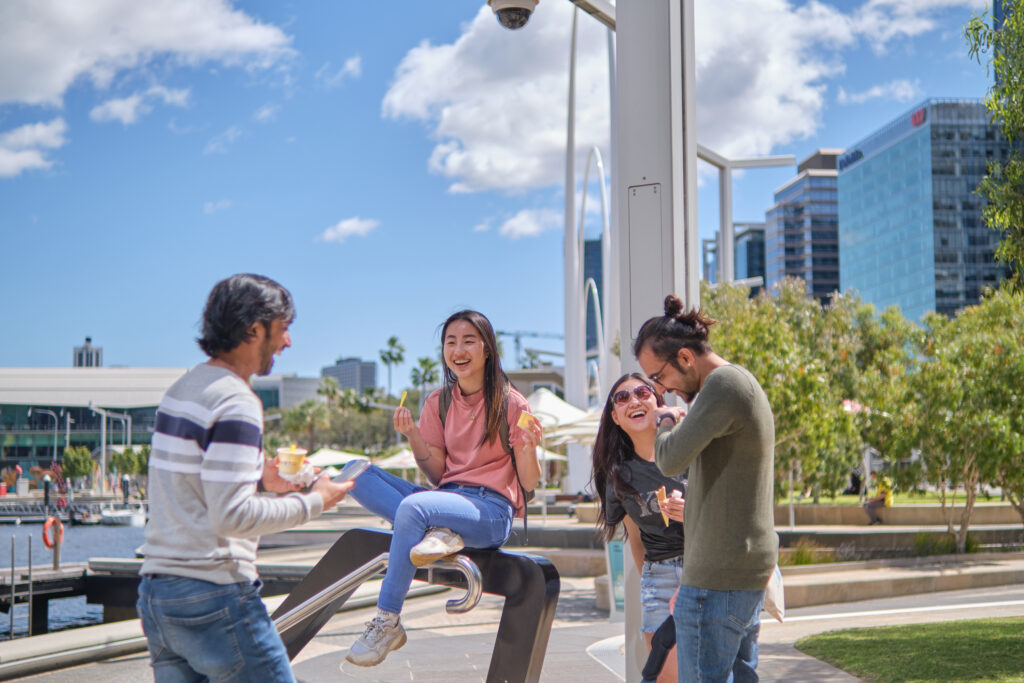This article has been written in collaboration with Stint Community.
Feeling lost about finding a job in Australia? Don’t worry, you’re not alone!
The job-hunting experience can get pretty isolating and confusing at times, especially for international students. You probably have a lot of questions about the whole process – from where exactly to find jobs, to what Australian working culture is like.
To help, we’ve compiled some answers to the top 10 most frequently asked questions that international students have about working in Australia. Let’s take you through them!
Where can I find job listings?
LinkedIn is a good place to start. With 875 million users globally, it provides users with pools of job positions requiring various skills and levels of experience. Plus, their algorithm can help you make connections and apply to jobs suitable for your choice of industry or career. Many organisations hire applicants through LinkedIn’s Easy Apply function, which only requires your contact details, some basic background information and your CV/resume, so there is no need for a cover letter (although, these may still be helpful).
Other job-searching platforms such as SEEK, Indeed and Workforce Australia are also good places to start. With their keyword and area features, you can easily filter out available jobs according to your preferences.
You can also join communities whose aim is to help students build their careers. A good example is the Stint Community – Australia’s largest community of international students with members from all across the country – dedicated specifically to helping international students find jobs in Australia. We don’t just offer members the chance to connect with fellow international students, but also host networking events, post exclusive job opportunities, and offer services such as an on-hand migration agent and free CV reviews.
Click here to join the community!
Which visa is needed for international students to work in Australia?
The most common visa that international students hold in Australia is the Student visa (subclass 500). This visa grants working rights to current international students. From 1 July 2023, student visa holders can work a maximum of 48 hours per fortnight during study periods. This policy ensures the students’ course enrolment, satisfactory course attendance and satisfactory course progress – as the main purpose of this visa is education, and not work.
What are the basic requirements needed for international students to work in Australia?
The first and most important requirement is understanding your working rights. It is essential that you do not breach your visa requirements!
Typically, there are no separate requirements that are assigned specially for international students in order to work in Australia. However, some English requirements, educational qualifications, or certificates/checks may be necessary.
Another essential component when applying for a job in Australia is a Tax File Number (TFN). In order to apply for TFN, you need your passport and to hold permanent residency, a student visa, or a visa with work rights that allows the holder to stay in Australia. This number is required when applying for jobs to be valid to pay income tax and file a tax return every year.
How can international students make their job applications stand out?
As international students, we are raised in a variety of different cultures. This rich upbringing is a huge advantage for us, especially as many employers nowadays are looking to hire people who are culturally competent.
Some components we can add to our application to make it stand out amongst others are skills or knowledge unique to us, such as the ability to speak different languages, as well as the depth of knowledge regarding our personal culture or others we have learnt about. These can be desirable in companies that aim to extend their business overseas or expand their client/customer pool. Additionally, as international students settling in a foreign country, there are some character traits mandatory for us to acquire to thrive, such as resilience and open-mindedness towards unfamiliar situations and behaviours. Mention these in your application for employers to see!
Moreover, just because the job you are applying for is Australia-based, it doesn’t mean you should refrain from mentioning your previous experiences abroad. Use as much of your experience to your advantage! Showing your employer your experiences abroad may pose a bonus point for your knowledge regarding various work cultures and shows how well you can adapt.
How can we build our network in Australia as an international students?
You can build your network by joining student clubs or societies, attending events, participating in online groups and communities, and creating a presence on LinkedIn.
By joining student clubs and societies, you can expand your personal network by meeting new people, often with similar interests and goals. Aside from interacting and conversing with other members, joining these clubs also means taking on tasks and responsibilities that help develop your skills!
Events are one of the best places for meeting and networking with people. Every event has a topic or an aim, and the people who are making the effort to attend must have an interest in the topic or aim in one way or another. Thus, events are a fantastic way to meet people with similar interests. Finding people with similar interests leads to opportunities to help each other and grow with one another’s support.
Just like other groups and communities, online groups and communities have the same structure and goal with only one difference – they’re online! However, unlike other groups and communities, being online allows members from all over the country (and even the world) to join and interact with each other – which widens the scope of potential networking. Joining these groups and communities are extremely beneficial in meeting people from different backgrounds, and thus expanding one’s network.
Having a LinkedIn account is incredibly useful in forming connections with international alumni who are now working in a field or industry that you’re interested in. Engaging with them can be an important step in building and expanding your network. Simply click on their profiles to see their interests and experiences, and send them a message introducing yourself.
How does the working culture in Australia differ from other countries?
Working cultures differ from country to country, however, the level of difference between countries varies, so we can only share the features of Australia’s work culture.
The overall communication present in workplaces is direct but is delivered in a friendly and respectful way. Workplaces encourage freedom of speech and emphasise the workers’ rights to voice their opinions freely without judgment. In Australian work culture, punctuality is greatly prioritised.
A characteristic that is often a culture shock to many is the absence or lack of hierarchy between employees. Despite the presence of statuses and titles, everyone is treated and considered as equals with unquestionable respect. In addition, handshakes, addressing individuals using first names and smiling frequently are signs of mutual respect in workplaces.
What are some top tips for landing a job as an international student?
After much emphasis and discussion surrounding the difficulty of finding a job as an international student in Australia, it’s only fair for us to end it by giving you tips on how to successfully land one!
- Network as much as you can. Sign yourself up for events, seminars and workshops! Attending these will undoubtedly expose you to experienced groups of people coming from a mixture of industries, hence providing valuable insights.
- Build your CV according to the job you’re applying for. Don’t just pile all your experiences up in one CV! Concentrate on experiences that demonstrate the skills you know the job needs but don’t forget to include some light descriptions of yourself such as your interests and perhaps languages you can speak.
- Finally, the secret to everything. Be confident! In yourself, your skills and your experiences. Employers like it when you know what you want and how you can get it.
What should international students study to secure a job in Australia?
Many international students select their course or qualification according to those that assure them the greatest possibility of securing a job once they graduate. Demand for graduates with qualifications in healthcare, technology, and commerce are predicted to sky-rocket in the coming years due to several factors such as Australia’s growing aging population, the globally rapid technological advancements, and the constantly growing corporate world.
However, it’s important to study a course that you are passionate about, too. To have a fulfilling career, you need to ensure you’re pursuing something you enjoy. Your education provider will have a careers service where you can discuss your future plans, regardless of which pathway you decide to follow.
What jobs/industries have the highest demand for international students?
As international students provide valuable insights into different cultures and ways of living, industries that include meeting a range of people coming from various backgrounds typically have strong demand for international student candidates.
For example, the tourism industry offers jobs such as hotel managers, tour guides and flight attendants, which makes use of international students’ language and cross-cultural communication skills. In the education industry, students can opt for different teaching positions in fields such as foreign languages, which not only requires knowledge of several languages but also, their cultural customs, traditions, festivities and more.
Ultimately, international students’ tenacity to pull through unfamiliar situations and exposure to different cultures will allow them to better connect with and support people in their careers.
Author: Ailene Susanto




